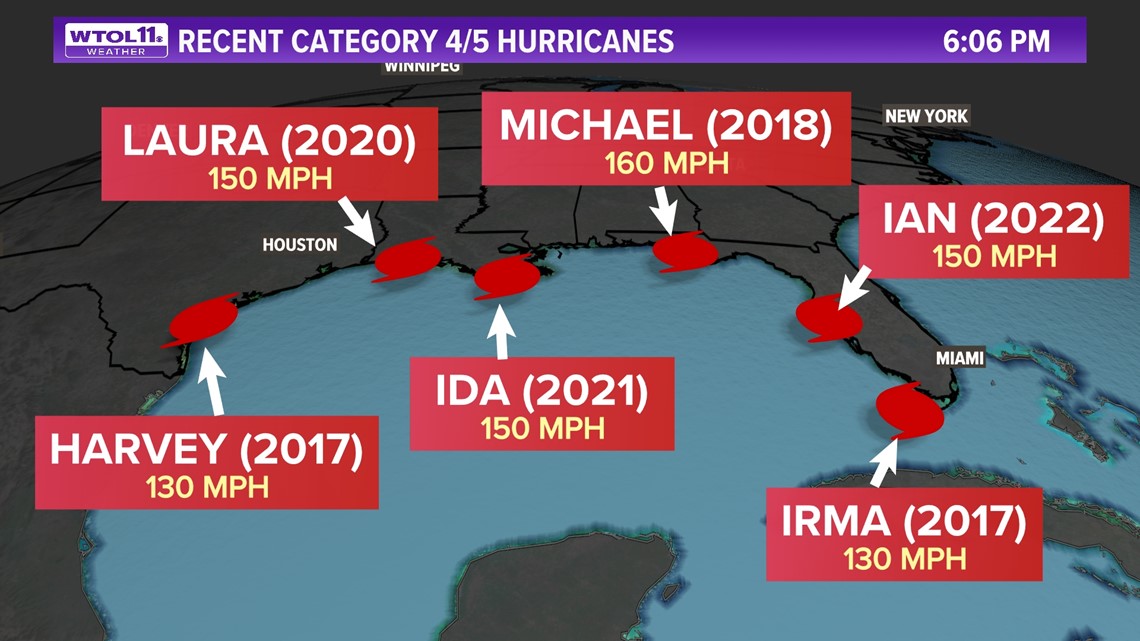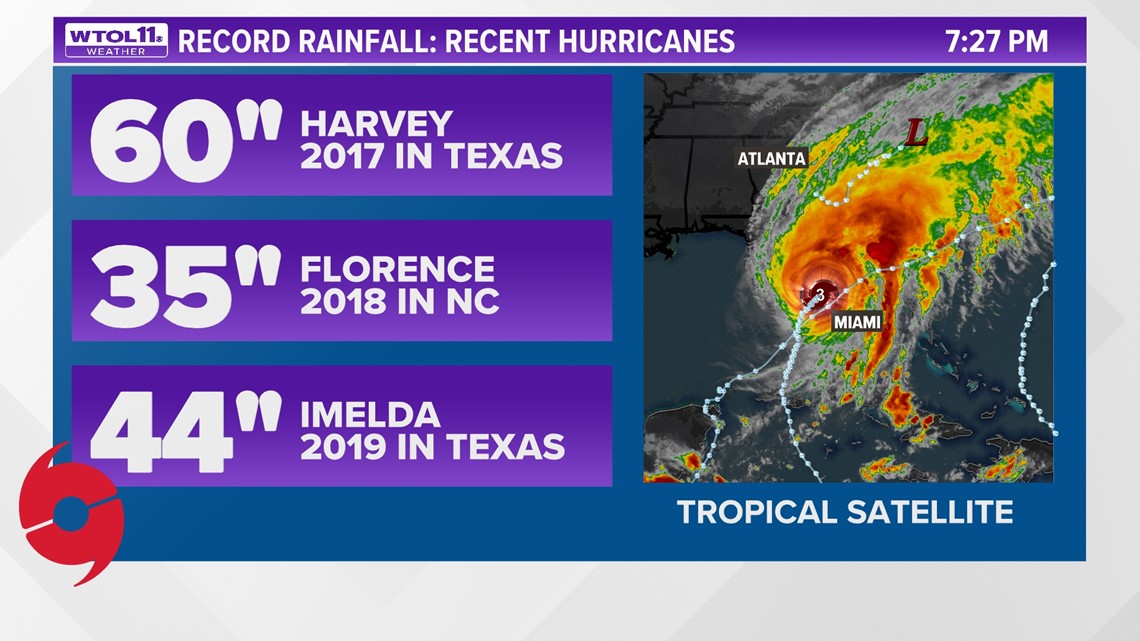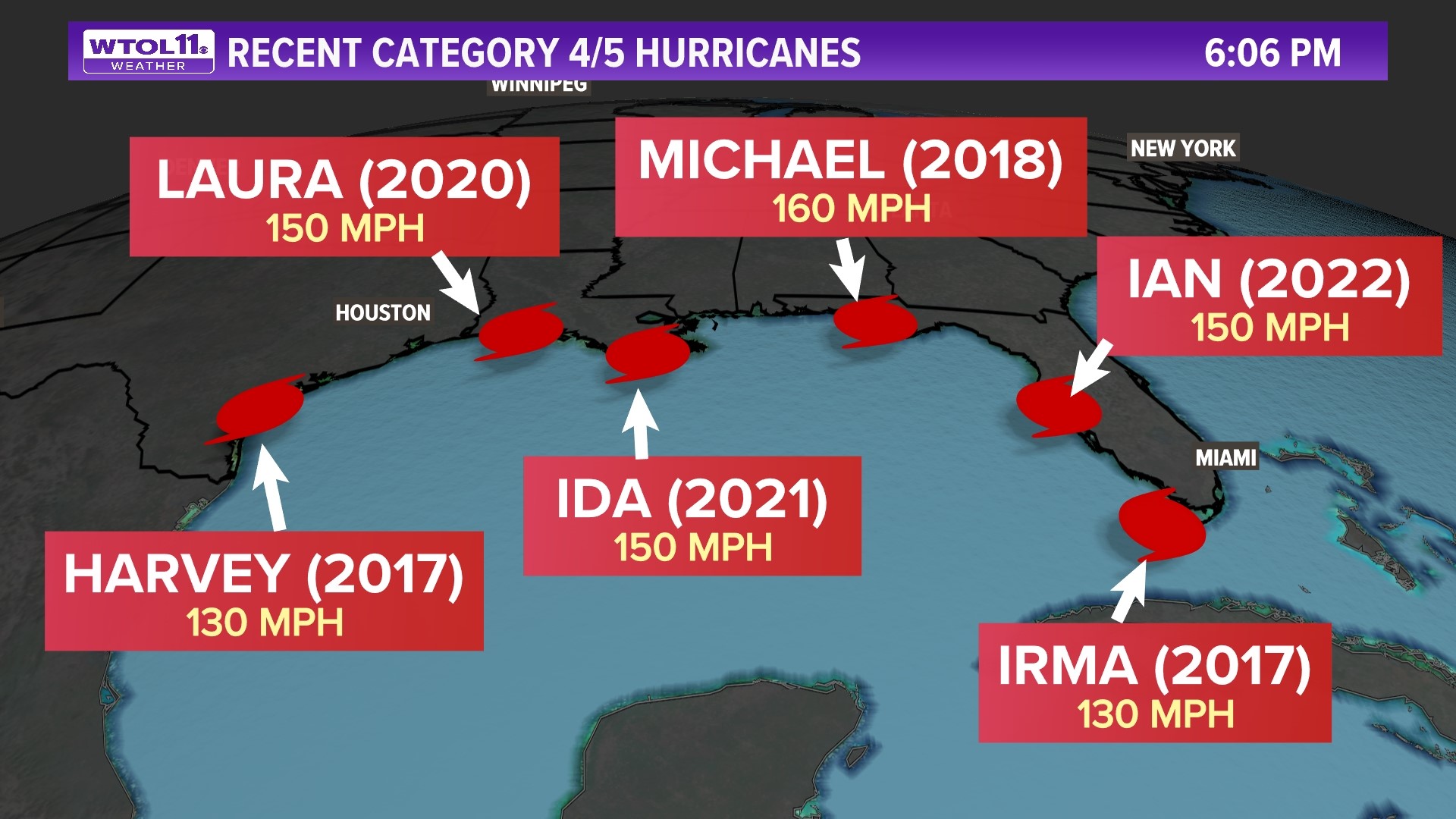TOLEDO, Ohio — Hurricane Ian barreled down on the Gulf Coast this week, making landfall in western Florida Wednesday afternoon as a major Category 4 storm with 150 mph wind speeds.
Significant structural damage, 12 to 18-foot storm surge and flooding rain devastated the Sunshine State, and Ian's impacts are not done just yet. As the tropical cyclone moves north and potentially makes another landfall in the Carolinas early Friday, it will dump heavy rain and whip up powerful winds.
Eventually, the remnants of Ian will track into the Mid-Atlantic region, possibly bringing some cloud cover to Ohio. Hurricane Ian will go down in the record books as one of the worst tropical cyclones to hit the west-central coast of Florida.
But did climate change play a role?
While climate change does not inherently cause any hurricanes or weather patterns, it enhances and changes them. Climate change has amplified tropical cyclones and enhanced their impacts in recent decades.
First, climate change leads to rapid intensification of hurricanes. Ian picked up steam so quickly because the warm waters of the Gulf of Mexico fueled its development.


Second, more evaporation occurs in today's warmer climate due to warmer water and air. This leads to heavier precipitation and intense flooding.
Boiling a pot of water on the stove metaphorically represents our hotter climate. When the burner is turned to high, the water will boil much more quickly than when the burner is set on low.
Climate change has cranked up the burner to high, causing water from the oceans to evaporate more quickly and fall as heavier precipitation.
Third, sea level rise caused by climate change exacerbates the impacts of tropical cyclones from storm surge. Areas that only experienced minor flooding in the past have experienced severe flooding in recent years.


Lastly, climate change has slowed down the movement of tropical systems, drawing out the impacts over many days. Research has shown a 10% reduction in the speed of tropical cyclones since the middle of the 20th century.
This causes greater rainfall and persistent impacts from tropical cyclones.
Though climate change didn't cause hurricane Ian, it provided ingredients for rapid intensification and devastating impacts. Ian is just one of many examples of tropical cyclones enhanced by global warming.
Major hurricanes with significant impacts will grow more common in the future. Stay tuned to WTOL 11 for the latest information on the tropics and local weather here at home.
RELATED VIDEO

